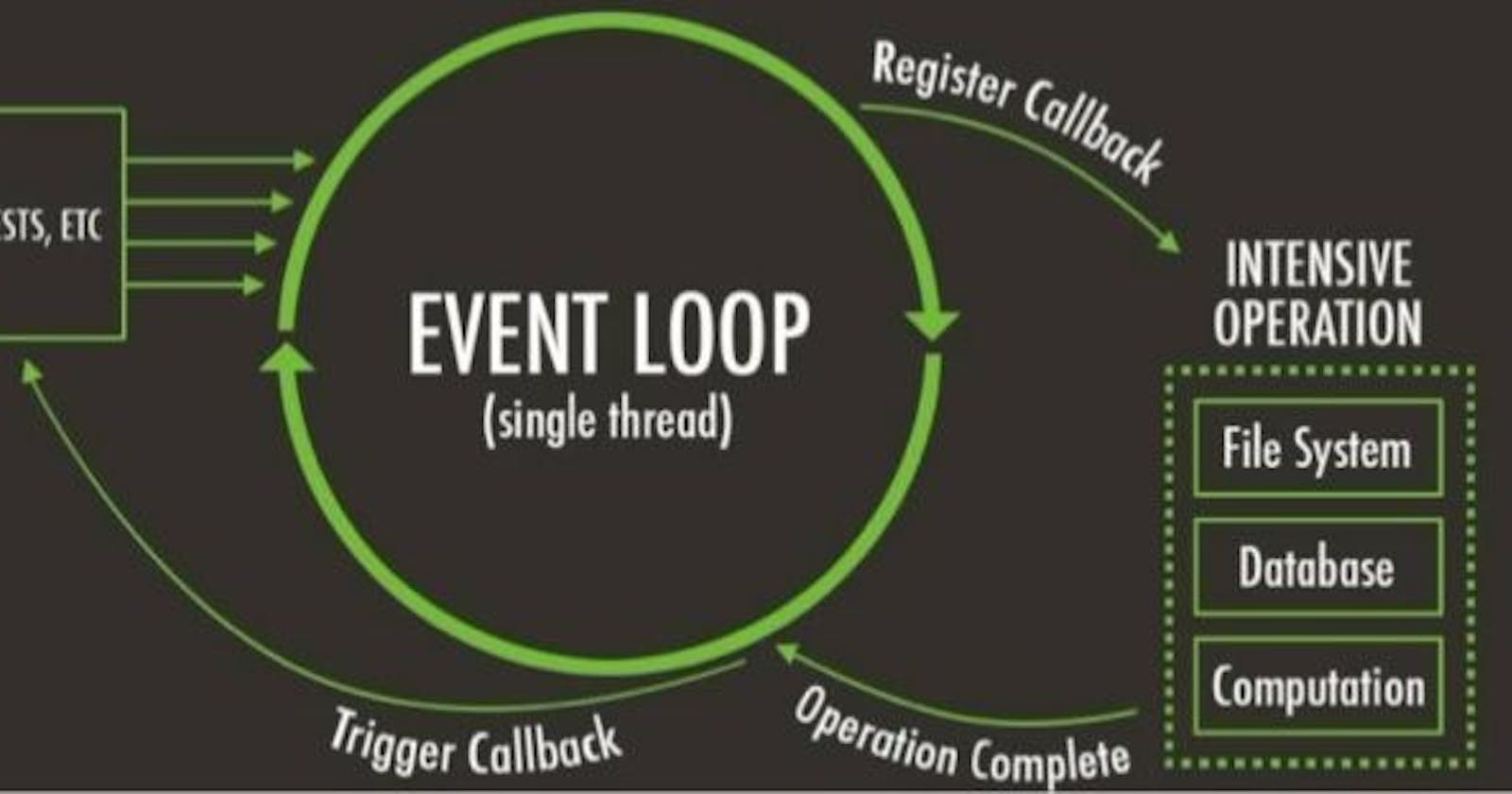In Node.js, "non-blocking I/O (input/output) operations" refers to a programming paradigm where the execution of an I/O operation (such as reading from a file or connecting to a network) does not block or halt the execution of the program. Instead, the program continues to run while the I/O operation is performed in the background. Once the I/O operation is completed, a callback function is executed to handle the results of the operation.
For example, reading a file in a traditional blocking way would look like this:
var content = fs.readFileSync('file.txt');
console.log(content);
The readFileSync() function blocks the execution of the program until the file is read, and the content is returned.
In contrast, reading a file using non-blocking I/O in Node.js would look like this:
fs.readFile('file.txt', function(err, data) {
if (err) throw err;
console.log(data);
});
The readFile() the function reads the file asynchronously in the background and returns control to the event loop. Once the file is read, the callback function is executed and passed the contents of the file.
Libuv, which is a multi-platform library that provides an event loop and other asynchronous I/O functionality, helps in implementing this non-blocking I/O in Node.js. The event loop is implemented in C++ as part of the libuv library and is responsible for handling asynchronous events and delegating them to the appropriate JavaScript callbacks. It uses a combination of polling mechanisms (such as epoll on Linux and kqueue on macOS) and callbacks to efficiently handle a large number of events.
In other words, libuv event loop allows Node.js to handle non-blocking I/O operations by scheduling the execution of JavaScript code and handling the completion of the I/O operations. This way, the program doesn't wait for I/O to complete before continuing execution, it can continue with other tasks, and once the I/O operation is completed the callback is executed.
Advantages and Disadvantages of "non-blocking I/O operations" in Node.js
The use of non-blocking I/O operations in Node.js has both advantages and disadvantages.
Advantages:
High performance and scalability: Non-blocking I/O operations allow Node.js to handle a high number of concurrent connections and perform multiple I/O operations at the same time, making it well-suited for building high-performance, scalable network applications.
Low resource usage: The event loop in libuv is designed to be non-blocking and efficient, which means it uses very little CPU resources even when handling a large number of events.
Good for building real-time applications: Applications such as chat, streaming, gaming and more that require real-time communication can benefit from non-blocking I/O operations.
Disadvantages:
Callback hell: because of the non-blocking nature, it can lead to a lot of nested callbacks which can make the code hard to read, understand, and maintain.
Error management: When working with multiple callbacks it can be difficult to handle errors and make sure they are propagated correctly.
Asynchronous nature: It can be difficult to reason about the order of operations and predict the outcome of a program.
Overall, the use of non-blocking I/O operations in Node.js can make it well suited for building high-performance, scalable network applications, but it does require a different way of thinking about program flow and error management. With the introduction of async-await it has made the programming model more readable and manageable.
